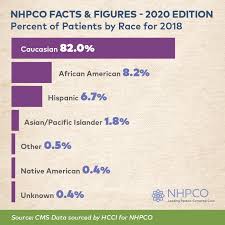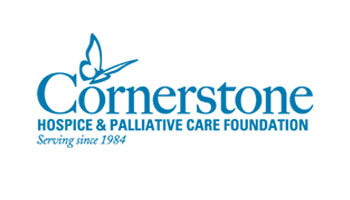
While home care for seniors can be a viable option for many, it can also prove costly. At-home care costs depend on how much time the professional healthcare worker is available and what the rate per hour, overnight, or day is. It is important to take into account all costs before hiring caregivers. Although the original Medicare plans did not cover home-care, they do provide coverage for medically necessary care. Remember that Medicare does not cover non-medical services.
Benefits from senior live-in care
Live-in care provides many benefits for senior citizens. For one, it is a much safer environment for senior citizens than living alone. Caregivers are trained and certified to help seniors with balance, strength, cognitive function, and other issues. Live-in caregivers are able to assist seniors with safety measures such as grab bars or rails. Senior citizens can be helped to maintain independence by live-in caregivers.
One of the benefits of senior live-in caregivers is the reduction in stress. Live-in caregivers can be available 24 hours a days to care for senior clients because they are always present. They provide families with peace of mind. For seniors with special needs, living-in care may be a good option. This type of care is ideal for senior loved ones who are suffering from dementia.

Costs for senior in-home care
Prices for in-home senior care can range from $713 to $26,825 depending on the level required. Even those who don't need much help, many older adults only require companionship for a few hour per day. Some seniors may need additional assistance with daily activities and medication management. These are some things that you should know about hiring a local home healthcare agency to provide care at your residence.
New York State can be divided into 10 geographic and economic regions. Each has its own rates. Utica and Buffalo are the most expensive major cities of the state. The Albany Capital Region offers lower rates than in the state at $5.148 per month. However, prices are higher in the greater New York City metropolitan area, with Rochester, Syracuse, and Ithaca all having above-average rates. There are many factors that affect the cost of in-home care, regardless of where you live.
There are several options available for hiring a caregiver
There are many options to find a caregiver for seniors. Employers have the option of hiring an independent caregiver to take on a variety if tasks. This type of caregiver typically helps with activities of daily living and may be trained in certain medical tasks. This type of caregiver is paid at a different rate. The cost of an independent caregiver is usually lower and the client is more familiar with them. It is important to understand what to expect when hiring a caregiver.
You can avoid the hassle and expense of looking for a caregiver by hiring a placement agency. Placement agencies can refer caregivers directly to employers, providing a higher level of service. Employers pay their Social Security taxes, unemployment insurance and caregivers get paid per hour through placement agencies. This is one of the disadvantages to hiring through them. Other placement agencies may require additional fees for supervising their caregivers.

Choosing a home care agency
It is important to be aware of what to look out for before you hire a home care agency. You must first ensure that they are properly bonded and insured. You should also ask about background checks and whether the employees are insured. It is also worth asking about the number and rotation of caregivers. You should also inquire about their quality-of service standards and any conflict resolution procedures.
After narrowing down your choices, schedule an interview with each agency staff member. Make sure the people you speak with are knowledgeable and attentive. It is important to ask about their training and how attentive they are to the needs and wants of your loved ones. It's also worth asking about their fees. You will ultimately decide if the agency's services are worthwhile.
FAQ
What does "public" mean in public health?
Public Health refers to the preservation and enhancement of the health status of the community. It includes preventing disease, injury and disability, encouraging good health practices, providing adequate nutrition, and controlling communicable diseases and environmental hazards.
What is the difference between health system and health services?
Healthcare systems go beyond providing health services. They encompass all aspects of the life context, including education, employment and social security.
Healthcare services, on the other hand, focus on delivering medical treatment for specific conditions such as cancer, diabetes, mental illness, etc.
They may also be used to refer to generalist primary-care services that are provided by community-based practitioners under the guidance of an NHS hospital Trust.
What are the differences between different types of health insurance
There are three types main types of health insurance.
-
Private health insurance covers most costs associated with your medical care. This type insurance is often purchased directly by private companies. Therefore, you will pay monthly premiums.
-
The majority of the costs of medical care are covered by public health insurance, but there are limitations and restrictions to coverage. Public insurance covers only routine visits to doctors and hospitals, as well as labs, Xray facilities, dental offices and prescription drugs. It also does not cover certain preventive procedures.
-
To save money for future medical expenses, medical savings accounts (MSAs) can be used. The funds are held in a special account that is separate from any other kind of account. Many employers offer MSA programmes. These accounts are tax-free, and they accumulate interest at rates similar to bank savings accounts.
What is a healthy system?
The health system encompasses all aspects of care from prevention to rehabilitation and everything between. It includes hospitals and clinics as well as pharmacies and community services.
Health systems are adaptive complex systems. They are complex adaptive systems with emergent features that cannot always be predicted by looking at each component.
Complex health systems can be difficult to comprehend and manage due to their complexity. Here creativity is key.
Creativity helps us find solutions to problems we don't know how to solve. We can use our imagination to think of new ways to improve and create new ideas.
Because health systems are constantly changing, they need people who can think creatively.
Thinkers who are creative can change the way the health system works for the better.
What are the services of health care?
Patients need to be aware that they have 24/7 access to high-quality healthcare. We can help you, whether you have an urgent need or a routine checkup.
There are many types of appointments available, including outpatient and emergency procedures, walk-ins, same day surgery, same-day surgeries, and emergency department visits. For those who live outside of our clinic, we also offer home care visits. We will ensure that you get prompt treatment at the nearest hospital if you aren't comfortable visiting our clinic.
Our team is made up of nurses, doctors and pharmacists as well dentists. We are committed to providing outstanding patient service. Our goal is to make each visit as painless and convenient as possible.
What are the major functions of a system for health care?
The health insurance system should be able to provide the necessary medical facilities for those who require them at a reasonable rate and allow everyone access to quality services.
This includes providing health care and promoting healthy lifestyles. It also involves providing an equitable distribution of health resources.
Statistics
- The healthcare sector is one of the largest and most complex in the U.S. economy, accounting for 18% of gross domestic product (GDP) in 2020.1 (investopedia.com)
- About 14 percent of Americans have chronic kidney disease. (rasmussen.edu)
- Over the first twenty-five years of this transformation, government contributions to healthcare expenditures have dropped from 36% to 15%, with the burden of managing this decrease falling largely on patients. (en.wikipedia.org)
- The health share of the Gross domestic product (GDP) is expected to continue its upward trend, reaching 19.9 percent of GDP by 2025. (en.wikipedia.org)
- Consuming over 10 percent of [3] (en.wikipedia.org)
External Links
How To
How to Locate Home Care Facilities
People who require assistance at home can use home care facilities. These include elderly persons who are unable to move independently and disabled people with chronic conditions such as Alzheimer's. These services include personal hygiene and meal preparation, laundry, cleaning as well as medication reminders and transportation. They often work in close collaboration with social workers, medical professionals, and rehabilitation specialists.
The best way to find a home care service provider is through recommendations from friends, family members, local businesses, or online reviews. Once you identify one or two providers, you can ask them about their qualifications and experience. Providers should be flexible in their hours so they can fit into your busy schedule. Check to see if there is an emergency response available 24/7.
Consider asking your doctor for recommendations. If you don't know where to start looking, try searching online for "home health care" or "nursing home". You can use websites like Yelp and Angie's List or HealthGrades to compare nursing homes.
To get more information, call your local Area Agency on Aging and Visiting Nurse Service Association. These organizations will keep a list of local agencies who specialize in home care.
Many home care agencies charge high rates for their services. This makes it important to find the right agency. In fact, some agents charge up to 100 percent of a patient’s annual income. This is why it is important to select an agency that has been highly rated by The Better Business Bureau. Get references from past clients.
Some states even require home care agencies to register with the State Department of Social Services. For more information, contact your local government office.
Consider these factors when looking for a homecare agency.
-
Avoid any company asking you to pay upfront for services.
-
You should look for a well-established and reputable business.
-
Particularly if you pay out-of-pocket, be sure to get proof of insurance.
-
You should ensure that the state licenses any agency you hire.
-
For all costs related to hiring the agency, request a written contract.
-
Verify that follow-up visits are provided by the agency after discharge.
-
Ask for a list with certifications and credentials.
-
You should not sign anything without thoroughly reading it.
-
You should carefully read any fine print.
-
You should verify that the agency you are dealing with is insured and bonded.
-
Ask the agency how long they have been in business.
-
Verify that your agency is licensed by the State Department of Social Welfare.
-
Find out if the agency has received any complaints.
-
Contact your local government office that regulates home-care agencies.
-
It is important to ensure that staff members answering the phones are qualified to answer any questions you may have about homecare.
-
Contact your attorney or accountant to ensure you understand the tax implications of using home care.
-
Always get at least three bids for each home care agency you contact.
-
Do not accept a lower bid than the best, but at least $30 per hour.
-
Keep in mind that you might need to pay more than one home care agency visit per day.
-
Read everything before signing any contracts.